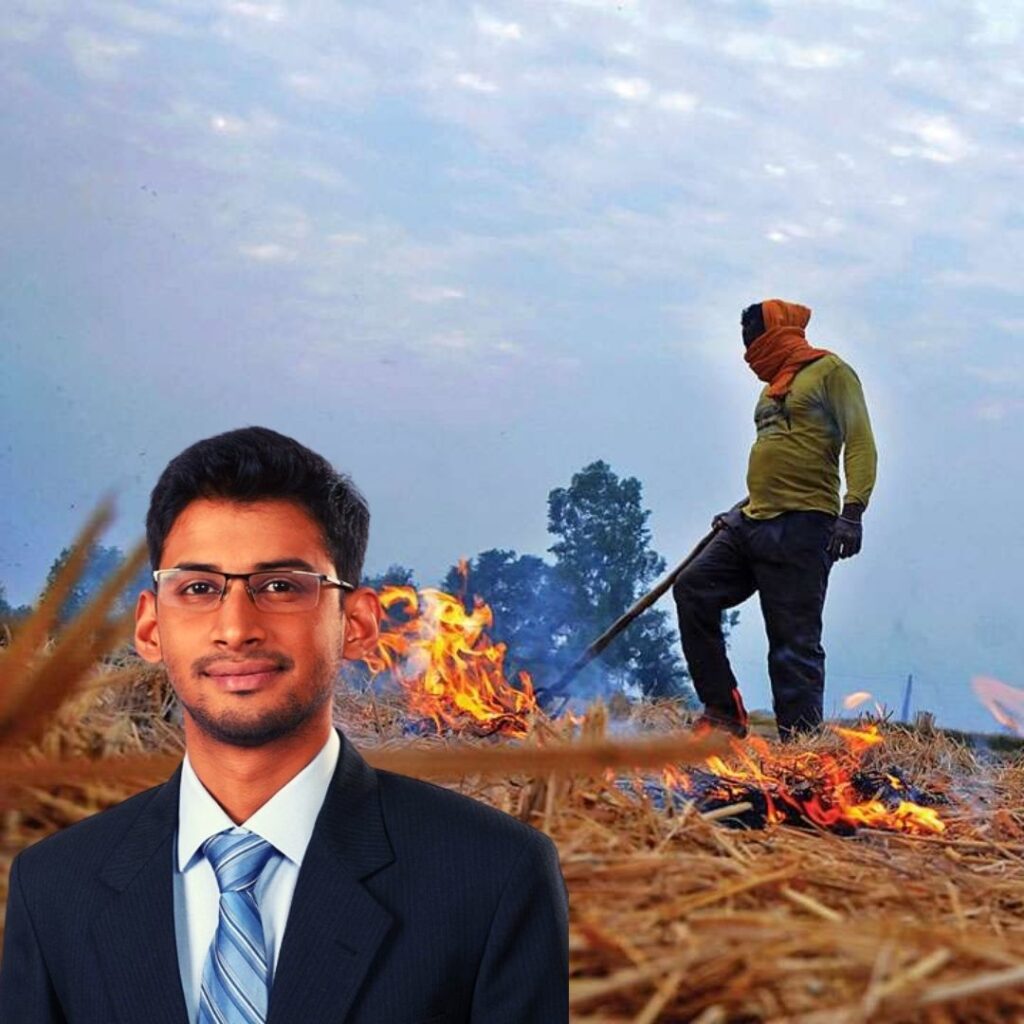Takachar is a company led by Mohan and Kevin Kung that aims to increase the amount of waste biomass into marketable products while reducing pollution associated with stubble burning.
Vidyut Mohan, a 29-year-old entrepreneur, is one of seven winners of the UN Environment Agency’s prestigious ‘Young Champions of the Earth’ 2020 prize. The award was offered to global change-makers who use innovative ideas and bold action to help solve some of the world’s most critical environmental challenges.
Vidyut, the co-founder of ‘Takachar’, is one of the achievers of the Eco-Oscar awards. He has contributed to improving air quality and eliminating the risk that reduces the population’s life expectancy by up to five years in Delhi.
About Vidyut Mohan Takachar is led by Mohan, a Delhi-based entrepreneur, who grew up in the national capital, and witnessed firsthand the deadly smog caused by stubble burning.
"I've always been passionate about energy access and creating income opportunities for poor communities," Mohan says in an MIT Tata Center report, as reported by TimesNow.
With ‘Takachar’, he put his passion into action. The company defines itself as an agricultural waste recycling service that converts waste biomass into marketable products at a low cost.
Mission And Vission
Takachar’s goal is to significantly increase the amount of waste biomass (post-harvest crop/forest residues) converted into marketable products worldwide while reducing pollution associated with open-air biomass burning.
Takachar enables rural farmers to earn 40% more by converting crop remains into fertilisers, fuels, and value-added chemicals like activated carbon (AC) on-site by deploying small-scale, low-cost, portable biomass upgrading equipment. To accomplish this, they employ a novel concept known as ‘oxygen-lean torrefaction.’
The innovative equipment generates energy by converting rice straws and coconut shells. The waste is burned at predetermined temperatures to produce fuels, fertilisers, and other essential products in a controlled environment.
Achievements
Takachar’s system is more profitable than sending waste biomass to centralised conversion facilities because it significantly reduces the logistics cost of hauling loose, wet, and bulky biomass. Farmers sell rice husks, straw, and coconut shells to the company, converting them into charcoal.
Mohan and co-founder Kevin Kung have operated with approximately 4,500 farmers and processed 3,000 tonnes of crops since the company’s inception in 2018, as reported by the publication.
Agricultural Waste In India
Every year, $120 billion of agricultural waste is generated globally. For most Indian farmers, stubble burning is the most cost-effective way to clear land for new plantations. They fail to recognise that waste contains many resources that can be channelled into producing fuels and fertilisers.
According to the World Health Organization, agricultural land burning causes air pollution that kills seven million people. At the COP26 summit, India recently pledged to achieve net-zero carbon emissions by 2070. As one of the significant contributors to carbon emissions, agricultural waste disposal can significantly reduce emissions, as reported by Time.
Vidyut Mohan has brought something to think about and imply amid climate change. Takachar will educate our farmers, but it will also assist the country in becoming carbon-neutral. Such innovations are urgently required and must be implemented to improve Indian climatic conditions.
Article Credits: The Logical Indian

Pingback: Noida Twin Towers Demolition Raises Health Concerns, How To Protect Against Dust And Air Pollution - SLSV - A global media & CSR consultancy network